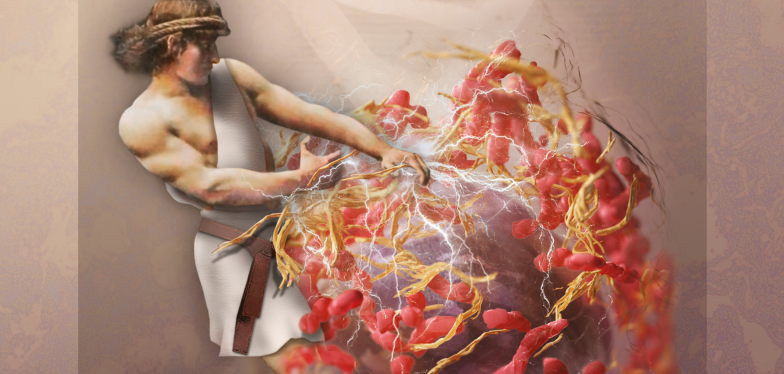Breakthrough in skin cancer research
The collaboration between Ghent University (UGent), the University of Leuven (KU Leuven) and VIB has produced an important breakthrough in research on melanoma, the most aggressive form of skin cancer. The research teams found a noticeable link between melanoma and the SAMMSON gene. This gene is crucial in the growth of aggressive skin cancer. The study paves the way for better diagnosis and treatment of melanoma. The results of the research appeared in the leading scientific journal Nature.

The objective of the research was to find a clear link between the development of skin cancer and long noncoding RNA genes (IncRNA), a specific form of RNA. Recent studies indeed demonstrate that a lot of noncoding RNA molecules do play an important role in biological processes and diseases. The team therefore examined to what extent IncRNA gene activity appears in different types of cancer.
The researchers identified an IncRNA gene called SAMMSON, which appears very specifically in melanomas and which could play an important role in the development of skin cancer. SAMMSON was present in a good 90% of the melanomas studied. In addition, the researchers discovered a noticeable dependency of melanoma cells on SAMMSON. If they decreased the presence of the gene, the cancer cells died rapidly and massively in each type of melanoma.
Since SAMMSON appears in malignant skin conditions, the presence of this gene would be an excellent indicator for investigating skin cancer. More research is required to prove this hypothesis and develop suitable diagnostic methods. The results are also very promising for the treatment of skin cancer. UGent-VIB/KU Leuven will soon be starting toxicology studies in order to map the possible risks of any future treatment, and discussions about future collaboration will also soon be under way.
For more information, you can contact the 2 principal investigators: Pieter Mestdagh (Pieter.Mestdagh@UGent.be) and Jean-Christophe Marine (jeanchristophe.marine@cme.vib-kuleuven.be).